Environment
-
 Climate
ClimateSome trees are coping with extreme heat surprisingly well
Rising temperatures could reduce trees' ability to photosynthesize. Scientists are trying to figure out just how close we are to that point.
-
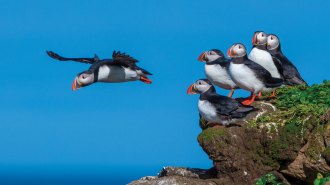 Animals
AnimalsHow a puffin patrol in Iceland is saving the iconic seabirds
Light pollution disorients young puffins. The Puffling Patrol helps them find their way to the sea.
-
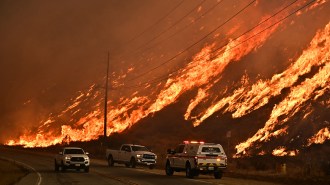 Climate
ClimateYes, you can blame climate change for the LA wildfires
Weather data show how humankind’s burning of fossil fuels made the hot, dry, windy weather more likely, setting the stage for the Los Angeles wildfires.
By Nikk Ogasa -
 Earth
EarthAnother danger looms after the LA fires: Devastating debris flows
As wildfires burn the landscape, they prime slopes for debris flows: powerful torrents of rock, mud and water that sweep downhill with deadly momentum.
By Nikk Ogasa -
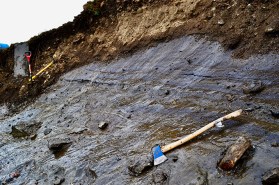 Climate
ClimateUnearthed ice may be the Arctic’s oldest buried glacier remnant
Thanks to climate change, thawing permafrost in the Canadian Arctic has revealed the buried remnant of a glacier that’s 770,000 years old.
By Nikk Ogasa -
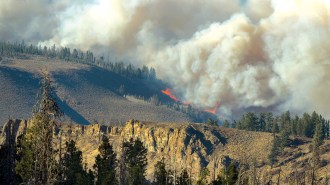 Environment
EnvironmentA podcast challenges us to reassess our relationship with wildfires
United by Fire lays out key insights from the two largest blazes in Colorado history, the Cameron Peak and East Troublesome fires of 2020.
By Nikk Ogasa -
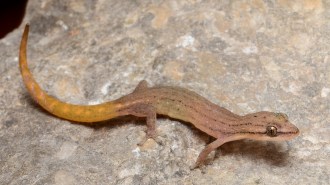 Animals
AnimalsMore new geckos have been found hiding in Southeast Asia’s limestone towers
Nearly 200 new gecko species found in living in karst landscapes reveal the rugged regions as dynamic areas of speciation.
-
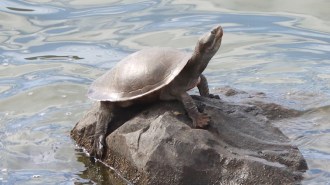 Animals
Animals‘Forever chemicals’ are causing health problems in some wildlife
Deformed scales in hatchlings and biomarkers indicative of disease progression are two health impacts on turtles at PFAS-polluted sites in Australia.
-
 Artificial Intelligence
Artificial IntelligenceGenerative AI is an energy hog. Is the tech worth the environmental cost?
Generative AI and the hype around it has rung in excitement and alarm bells this year. Here’s how to consider climate, energy and AI's intersection.
-
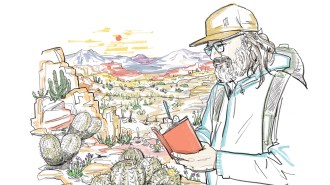 Plants
PlantsMeet a scientist tracking cactus poaching in the Atacama Desert
Botanist Pablo Guerrero has been visiting Atacama cacti all his life. They’re not adapting well to a drier climate, booming mining and plant collection.
-
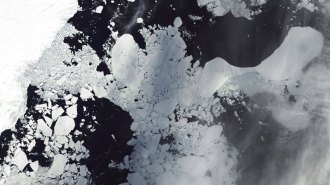 Climate
ClimateAn unexpected ice collapse hints at worrying changes on the Antarctic coast
The Conger Ice Shelf disintegrated in 2022. Satellite data leading up to the collapse hint at worrying changes in a supposedly stable ice sheet.
By Douglas Fox -
 Climate
ClimateFrom electric cars to wildfires, how Trump may affect climate actions
Trump’s first term, campaign pledges and nominees point to how efforts to address climate change and environmental issues may fare.
By Carolyn Gramling and Nikk Ogasa